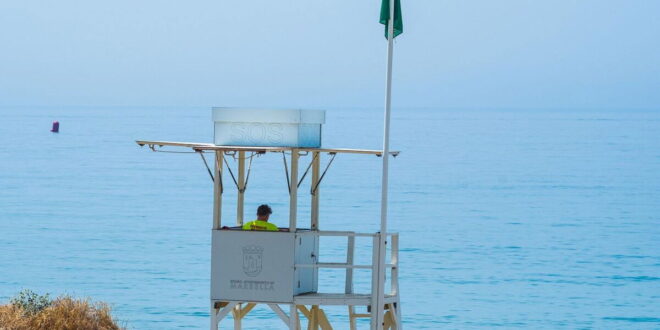In the first fortnight in July, the beach lifeguards of Marbella and their surveillance service handled a total 2,316 incidents. This shows how the safety measures of the city are effective when there is a large number of beachgoers.
One-hundred and eighty-three of these incidents involved lifesaving operations. The most common preventive action was lifeguards warning about jellyfish, the sea conditions and unauthorised navigation within restricted areas. Most incidents happened during yellow flag warnings. Red flag alerts followed, and then jellyfish sightings. The service carried out 16 rescues of water, of which 10 were classified as minor, and six as medium, with no severe cases yet reported.
Marbella beaches’ 619 jellyfish incidents
Jellyfish stings accounted for approximately 75 percent of all medical interventions. Treatments for minor ailments, anxiety attacks and cuts were also necessary. In 15 cases, an ambulance was called and five people were taken to the hospital.
In addition, 419 municipal bylaws violations were reported. Of these, 200 cases involved dogs being on the beaches outside of allowed hours. There were fines for littering, swimming outside the designated boating lane, fishing out of hours and prohibited activities, such as paragliding.
The lifeguard service recorded 95 rescue boat acts, most of which were focused on supporting and supervising in high-risk zones. The Beach Department of Marbella Council praised the coordinated efforts made by the teams. They also urged the public not to ignore lifeguard instructions or flag signals and to comply with the regulations governing the safe and responsible usage of Marbella’s coastline.
 Costa News Spain Breaking News | English News in Spain.
Costa News Spain Breaking News | English News in Spain.







